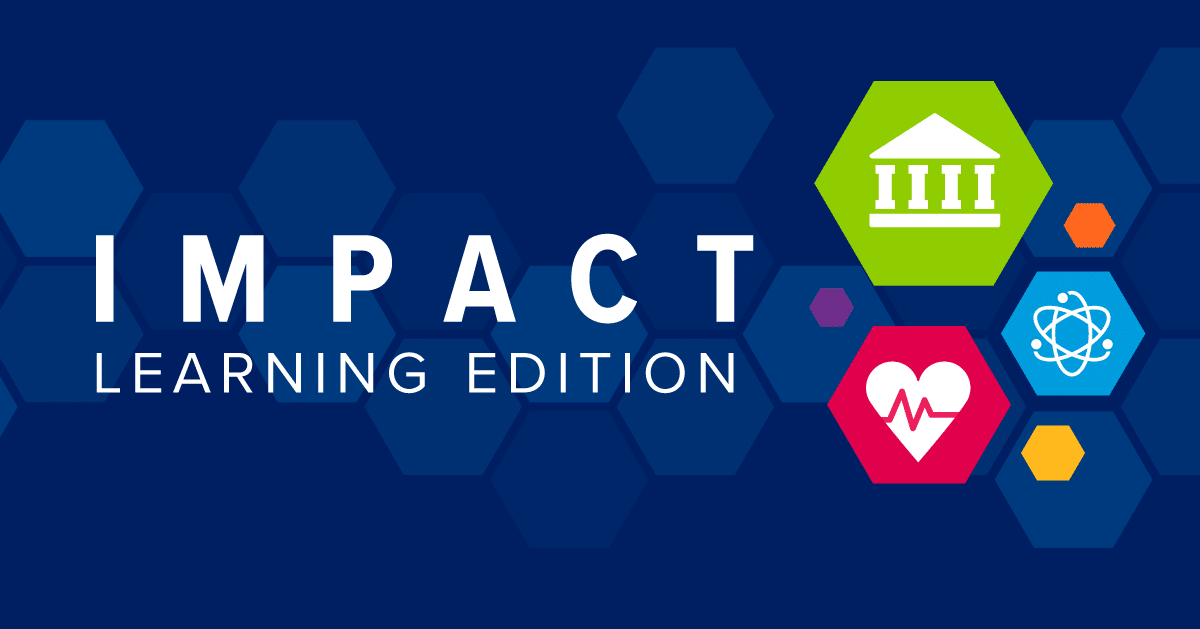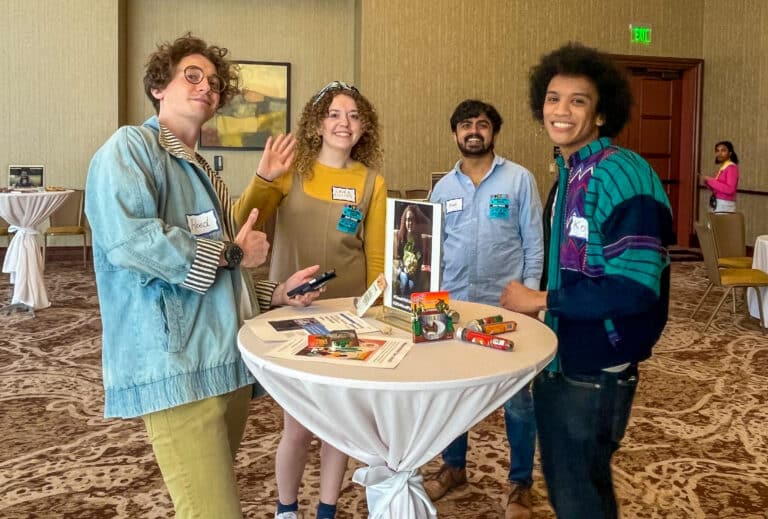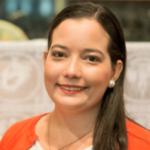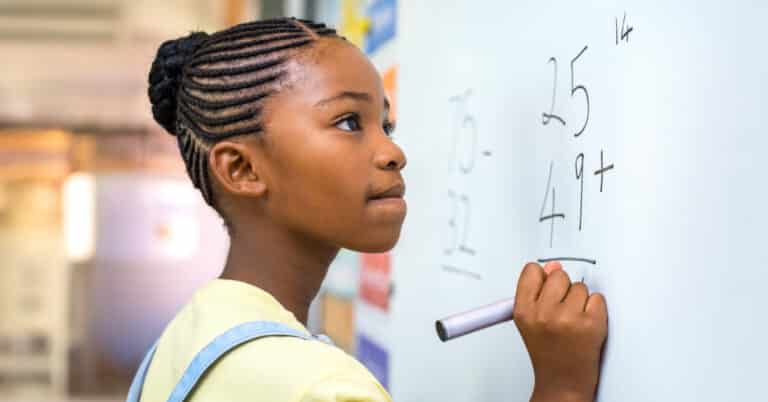By guest author Lonny Avi Brooks
AfroRithms from the Future (AFTF) is a collaborative, design thinking, storytelling game that centers Black, Indigenous and people of color (BIPOC) perspectives. Players are travelers of the multiverse exploring possible futures and creating exciting new artifacts to send back out to all other parallel worlds. The game is simple. Have a conversation about the future and activate your radical imagination. The game ends when you as a collective have decided on the best artifact to share with the rest of the multiverse.
Watch the demo video for the AfroRithms from the Future card game.
View now >>
This forecasting game suggests that by changing the traditional White, patriarchal normative gaze of racism and lens through which we usually view the world, we aim to change the societal “game” to expand alternative perceptions of the world through BIPOC perspectives, where BIPOC futures are central and matter. AFTF is also one of the signals of change happening now and highlighted in Scenario D: Economic-Driven Pathways Bypass Liberation from KnowledgeWorks latest anchor forecast Imagining Liberatory Education Futures.
The term AfroRithms intentionally focuses on shifting the cultural lens to understand the powerful ubiquity of algorithms in our digital world(s). AFTF shifts the lens through which we digitally reinforce and perpetuate dominant inequities, enabling us to expand the range of possible, more equitable, liberating multiverses. Its Afrofuturist imagery reflects Black-centered signals, with alternative visions we call the “Black Fantastic,” from Richard Iton (2008). Players sense the minor-key sensibilities generated from the underground of radical Black art. Designing a game from this perspective offers a pathway to grapple with notions of inclusion, equality and liberation. Several Black and BIPOC artists have contributed and shaped the card deck with their pulse on the Black Fantastic of visionary images. Re-discovering stories and histories with an alternate lens allows us to see the pluralistic nature of our realities and recover lost cosmologies and ways of being to adapt to the ravages of climate change.
How AfroRithms from the Future supports liberatory education
AfroRithms from the Future as an imagination card game supports liberatory education by centering traditionally marginalized communities in imagining the future, especially in designing algorithms and re-thinking interaction design in creating digital educational innovations, products, services and expanding career possibilities. The game supports individuals and communities in envisioning a collective future that can translate into entrepreneurial action and vibrant ideas for cultural events and in offering a springboard for an emerging legislative agenda.
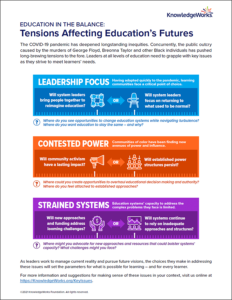
As leaders at all levels of education work to manage current reality and pursue future visions, the choices that people make in addressing these issues will set the parameters for what is possible for learning – and for every learner. Read “Education in the Balance” to examine the tensions and download sensemaking materials for more.
Read now >>
For example, let’s imagine a futures artifact in a world shaped by two tensions. In the game, tensions are uncertain areas that we are not sure how they will turn out in the future. Imagine having more Ancestral Intelligence as one of the tensions and less White supremacy as another tension. Then in this future world, what if we combined an Inspiration card like the iconic leader Angela Davis, a former leader of the Black Panther Party and current emeritus professor at UC Santa Cruz, with one of our object cards as simple as a shoe? What future artifact might we create?
The artist Alan Clark created an artifact called “Walk with Angela Davis,” which captured the essence of this scenario. It imagined shoes that generated a holograph of Davis accompanying the wearer of these shoes on a real-time or immersive tour of the Black Panther Party in Oakland, explaining its past and leveraging its future in augmented reality projected displays. Players even imagined an entire digital ecosystem generating Angela Diasporic Learning Entertainment where randomly created simulations might imagine different diaspora scenarios as healing intergenerational trauma by envisioning what would have happened if the Black Panther Party had attained all of its objectives.
How AfroRithms from the Future fosters social cohesion and relates to the levels of public institutions’ responsiveness
AfroRithms from the Future is part of a larger vision of futures literacy where its players discover and use their radical imagination to heal themselves and each other to realize their agency to influence and shape the future. We ask ourselves: How can and how does AFTF become part of a citywide, regional and national network of the imagination? What if and how can formally marginalized communities, from Black to Latinx to queer communities, imagine and showcase their visions of the future that galvanize their peoples to translate their visions into dynamic new cultural programming and as actionable legislative agendas?
The Community Futures School high school student interns were tasked with creating what the Museum of Children’s Arts calls a “porch talk,” a community discussion forum that usually focuses on building bridges and imagining how we understand Black, Indigenous and people of color to see more than the one-sided view of these communities as narrow unified peoples. Instead, how do we celebrate the full differences that exist within the Black diaspora. How are we Black and members of other class, cultural and gender identities?
In one particular porch talk during the COVID-19 pandemic in the summer of 2021, the students wanted to focus on their own trauma and anxiety they experienced during the lockdowns of the pandemic. Using AfroRithms from the Future, the student interns chose two tensions to create their new multiverse world of the future. In the first game round, one of the main tensions focused on a world where the most possible healing might take place and where the most possible trauma exists; they created artifacts based on this world. The next game round created a new world based on a set of tensions centered on the most possible healing and the most possible betrayal; they created artifacts based on this world as well.
What was quite noticeable during the game was the extent that the usually most articulate of the interns supported their peers in speaking and voicing their visions of the future. This moment was by far the most moving and unexpected observable impact of the game. The winning futures artifact was The Erykah Badu Pencil: Healing magic from this pencil will sense the levels of trauma experienced and will help you feel better as you are journaling about it.
AfroRithms from the Future represents a vision for democratizing the future, especially an antiracist one, where the game provides an accessible portal to multiple visions of the future. The game provides a medium for communities to articulate their visions of the future and make public institutions representative and responsive in becoming collaborative partners. AFTF facilitates imagining and prototyping healing innovations to service a multi-quintillion dollar economy of the imagination that heals intergenerational trauma and sustains social justice across 10,000 years and more.
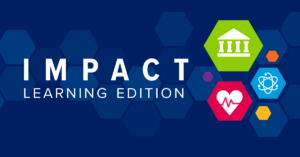
IMPACT: Learning Edition is another futures thinking game that encourages player conversation about the future of learning in their community.
Learn more >>
Claiming space: the power of the avatar
The co-designers of the AFTF are moving forward in augmenting the game as a worldbuilding springboard and story game by translating our game into a virtual reality we call the “pluriverse.” Collaborating with the virtual reality experience company, Origami Air Co. and the Arthur C Clarke Center for Human Imagination, the co-founders of the AfroRithm Futures Group, Ahmed Best and I, were offered a virtual reality play space, a high profile virtual blimp, which we are planning to create as a hub of Afrofuturism. With that aspirational global goal in mind, AFG is building a safe space for Africana and Indigenous peoples that we call the Astro-Egalitarian Virtual Nation (AVEN).
How do we claim Black space in virtual reality, in the metaverse? By focusing our attention on the power of the avatar, the graphical representation of a user’s character persona in virtual reality and its interaction within intentional communities created in virtual reality, our aspiration is to embody the avatar with affordances or powers for liberation that in turn bring, extend them back into the analog world.
The power of the avatar in claiming Black space can be embodied in the ancient name for Africa, Alkebulan, which means “mother of [human]kind.” Beginning with Alkebulan as a metaphor for leveraging ancestral intelligence into the future, we build a framework to create the varied textures of Africana Diasporic avatars or the Alkebulan-Avatar.
With the Alkebulan-Avatar in mind, we are developing the Union of African and Indigenous Diasporans, an experiment in creating a new virtual nation to offer a safe space for Africana, Black Diasporan and Indigenous peoples. These communities have already experienced and survived many different apocalypses. Inherent in this lived experience is the wisdom and social technology to share with the world about how to survive future apocalypses (and thrive and avoid them altogether). We can have fun ending White supremacy by celebrating the Black, Indigenous and queer imagination as we embody the aesthetics of these futures in the Alkebulan-Avatar and emerging virtual community nations.
Imagining AfroRithms from the Future 20 years from now
Twenty years from now, I would like to know that AFTF became one of the core imagination game springboards and platforms for the Community Futures School Youth Network in K-12 in collaboration with other similar networks, such as the Teach the Future foundation.
The Community Futures School would now be one of the strongest national spaces for futures literacy among K-12 providing youth certification in strategic forecasting and coalition building with robust concentrations in Afrofuturism, Indigenous futurism and queer futurism.
AfroRithms from the Future in 2042 would be fully playable in the pluriverse / metaverse space where all players can combine inspirations such as Black joy and a bracelet to create and fully implement an ecosystem of innovations and services to support accessing our ancestral intelligence in a vivid, immersive and enjoyable manner.
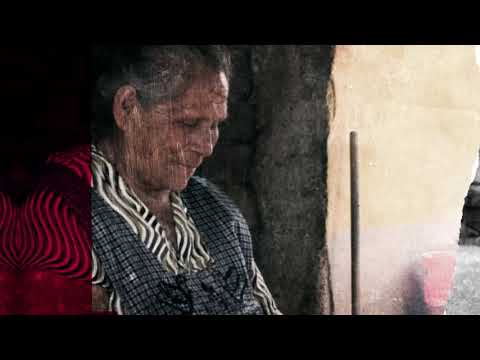
Imagine what liberatory education could look like in your community with our anchor forecast Imagining Liberatory Education Futures.
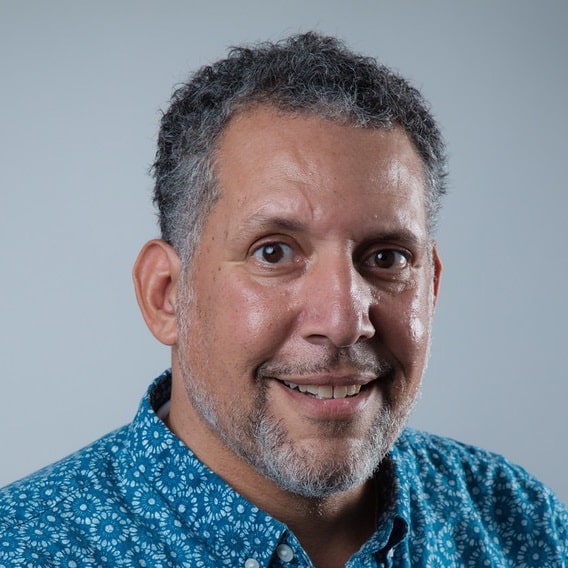
Lonny J Avi Brooks is a professor in the Department of Communication at California State University, East Bay, piloting the integration of futures thinking into the communication curriculum for the last 19 years. A leading voice of Afrofuturism 2.0, Brooks contributes to journals, conferences and anthologies and is co-executive producer, with Ahmed Best, of The Afrofuturist Podcast; contributing author to Afrofuturism 2.0: the Rise of Astro-Blackness; lead editor of “When is Wakanda? Afrofuturism & Dark Speculative Futurity” (Journal of Futures Studies, 2019); lead co-organizer for the Black Speculative Arts Movement (Oakland); creative director and co-founder of the AfroRithm Futures Group, creating media to imagine democratized futures. Brooks envisions social justice futures for Black, Indigenous and Queer liberation as co-designer of the game AfroRithms From The Future. He co-directs the Community Futures School at the Museum of Children’s Arts in Oakland, is a research affiliate at the Institute For The Future and a research fellow at Long Now Foundation. For 2021-2022, Dr. Brooks is a visiting professor at the Hasso Plattner Institute for Design at Stanford University. He serves as co-editor of the book series Afrofuturist Studies & the Speculative Arts, Lexington Press and is lead author of the chapter “Imagining Queer Futures with Afrofuturism” from Handbook of Social Futures (Routledge, 2022). His latest chapter is “From Algorithms to AfroRithms in Afrofuturism” as a contributor to the groundbreaking anthology Black Experience in Design: Identity, Expression & Reflection (2022). Working with the Origami Air World Network and the Arthur C. Clarke Center for the Human Imagination’s metaFutures series, Dr. Brooks and his AfroRithm Futures Group will produce the Mothership Series to introduce their Air AfroRithm ship as a vibrant hub for Afrofuturism establishing our presence in Virtual Reality, or what we like to call the Pluriverse to celebrate Juneteenth (2022).
Read the forecast Imagining Liberatory Education Futures.
